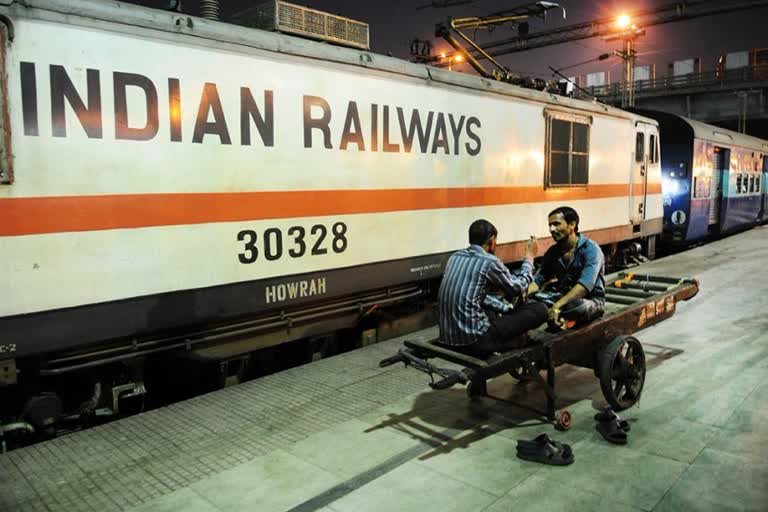New Delhi: Road movement is hugely energy intensive and costly and India doesn’t have a better and more efficient road logistics sector than either the USA or China. Yet, roads carry 60 percent of India’s cargo – higher than either of those two countries – and 85 percent of passengers.
If uncompetitive tariff is eroding rail’s share in freight; passengers are giving the railway a miss ignoring cheap fares. Since 2012, railway’s passenger traffic has remained stagnant at around 800 crore. The loss cannot be restricted only to the upper class, which contributes barely two percent of the volume.
There are two clear takeaways from this analogy. First, with over 12 lakh regular employees, earning an average salary of Rs 11 lakhs per annum, railways cease to be the lifeline of Indian economy. It is so costly that cargo users are finding roads a cheaper option.
Secondly, the politics of keeping passenger fares abnormally low (lowest in the world), is losing the social traction, thereby creating a golden opportunity for market-driven reforms. It is time for India to follow the global experience of large scale privatization and competition in the rail sector.
Long pending reforms
Till 1980’s, railways in most countries were run as a government arm. Globalisation and competition changed the paradigm beginning in the 1980's. Japan reformed its railways in 1987, followed by British Rail (1993).
Sooner or later, the fever caught the entire world. Both China and Russia undertook thorough reforms in its railway operations at the beginning of the last decade. South Korea restructured rail services in 2005.
The major takeaways of such structural changes were: doing away with below cost provisions of passenger services, corporatization and unbundling of railway operations, allowing the private sector to play a greater role with special focus on market making and customer service.
Some countries like China, even abolished the ministry of railways and brought it under the transport ministry so as to ensure better convergence of activities. Almost all countries ensured competition within a strict regulatory environment.
India too has been weighing railway reforms since the 1980's. Endless committees were formed. Two of them Railway Reforms Committee (Sarin) 1981-85 and, Indian Railway Report (Rakesh Mohan) made-wide ranging recommendations. But the recommendations were implemented in bits and pieces without much focus on end-to-end reforms.
Read more:Spice exports jump 23% as Covid outbreak boosts demand
For example, CONCOR was incorporated in 1988, as a subsidiary of Indian Railways, to spearhead railway logistics business. But subsequent recommendations of private participation in the sector didn’t find much wind. Indian Railways monopolised the sector. A 2006 policy to allow private container trains failed due to restrictive practices of CONCOR.
Special Freight Train Operator Scheme, Automobile Freight Train Operator Scheme – both introduced in 2010 – failed to attract private players and improve rail’s share of cargo. Rail bureaucracy, that is still run on colonial principles, wanted to dictate terms on the market and the market rejected it.
Often the recommendations were implemented so late that projects lost crucial market opportunity. The Dedicated Freight Corridor recommended by Rakesh Mohan is yet to come up.
The DFC project was approved in mid-2000. First major contract was awarded a decade later in 2013. The Narendra Modi government is now focusing on its implementation and expansion in a time-bound manner.
